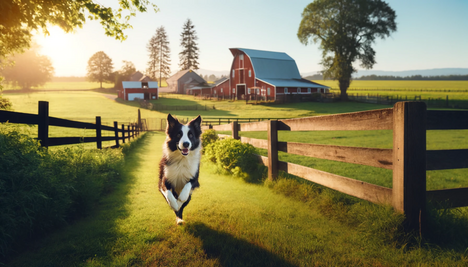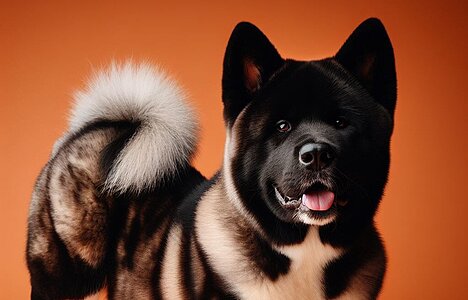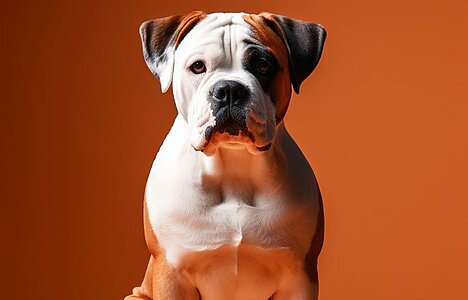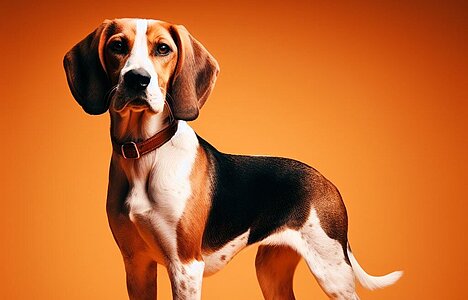"Not suitable for apartment" as intended use

Why some dogs are not suited to living in an apartment
Living with a dog in an apartment can be a wonderful experience, but not all dog breeds are cut out for this lifestyle. You may have seen the phrase "not suitable for apartment living" in descriptions of certain dog breeds and wondered what exactly is behind it. In this article, I will explain in detail what it means when a dog breed is not suitable for living in an apartment and what special needs these dogs have.
1. space requirements and urge to move
Large dog breeds and their requirements
Many large dog breeds, such as Great Danes or St. Bernards, simply need more space. Their size alone can be problematic in an apartment, as they often find it difficult to move around in confined spaces without knocking something over. In addition, many of these breeds have a strong urge to move around. They need plenty of exercise and space to move freely and release their energy. In an apartment, this can quickly lead to behavioral problems if the dog feels confined and does not get enough exercise.
High energy levels and activity
Some dog breeds, regardless of their size, have very high energy levels. Breeds such as the Border Collie or Jack Russell Terrier are known for their tireless energy and need for constant mental and physical activity. In an apartment, they can quickly become bored and frustrated, which can lead to destructive behavior if they are not sufficiently exercised.
2 Sensitivity to noise and alert behavior
Barking breeds
Dogs such as the Beagle or the Yorkshire Terrier are known for their barking behavior. In an apartment, frequent barking can quickly lead to problems with the neighbors. These breeds tend to react to every little noise and draw attention to it loudly. This is less noticeable in a house with a garden, but in an apartment it can be stressful for everyone involved.
Guard dogs and their guarding behavior
Breeds such as the Doberman or the German Shepherd were often bred as guard and protection dogs. They have a strong territorial behavior and tend to report any visitor or unusual noise. In an apartment, this can lead to constant interruptions and increased stress levels for the dog and its owners.
3. grooming and hygiene requirements
Long-haired breeds and their grooming
Long-haired breeds such as the Afghan Hound or the Newfoundland require intensive grooming. Their long hair can easily become matted and must be brushed regularly. In an apartment, the extra effort required to keep the dog clean and groomed can be considerable, especially if there is no garden for the dog to run around and clean.
Dogs with high salivation
Some breeds, such as the Mastiff or the Boxer, are known for their high salivation. This can be a constant challenge in an apartment, as the furniture and floor often need to be cleaned to remove the drool. In a larger home with a garden, this is less of a problem as the dog can spend more time outside.
4. personal needs and the well-being of the dog
Solitary vs. social dogs
Some dogs are true loners and need their peace and quiet. A hectic environment, as is the case in many homes, can be stressful for them. Other dogs, on the other hand, are very social and need a lot of human interaction. A dog that is constantly left alone in an apartment can suffer from separation anxiety and become depressed.
Cognitive and physical stimulation
Dogs need not only physical but also mental exercise. In an apartment, it can be more difficult to provide them with the necessary stimulation and challenges. Intelligent breeds like the Poodle or Australian Shepherd need daily tasks and challenges to stay happy and balanced.
Conclusion
If you're considering getting a dog and live in an apartment, it's important to choose a breed that suits this lifestyle. Not all dogs are suitable for apartment living and it is crucial to prioritize the needs of the dog. Find out thoroughly about the specific requirements of the breed you're considering and make sure you can meet them. Because a happy dog makes you happy as an owner too!



